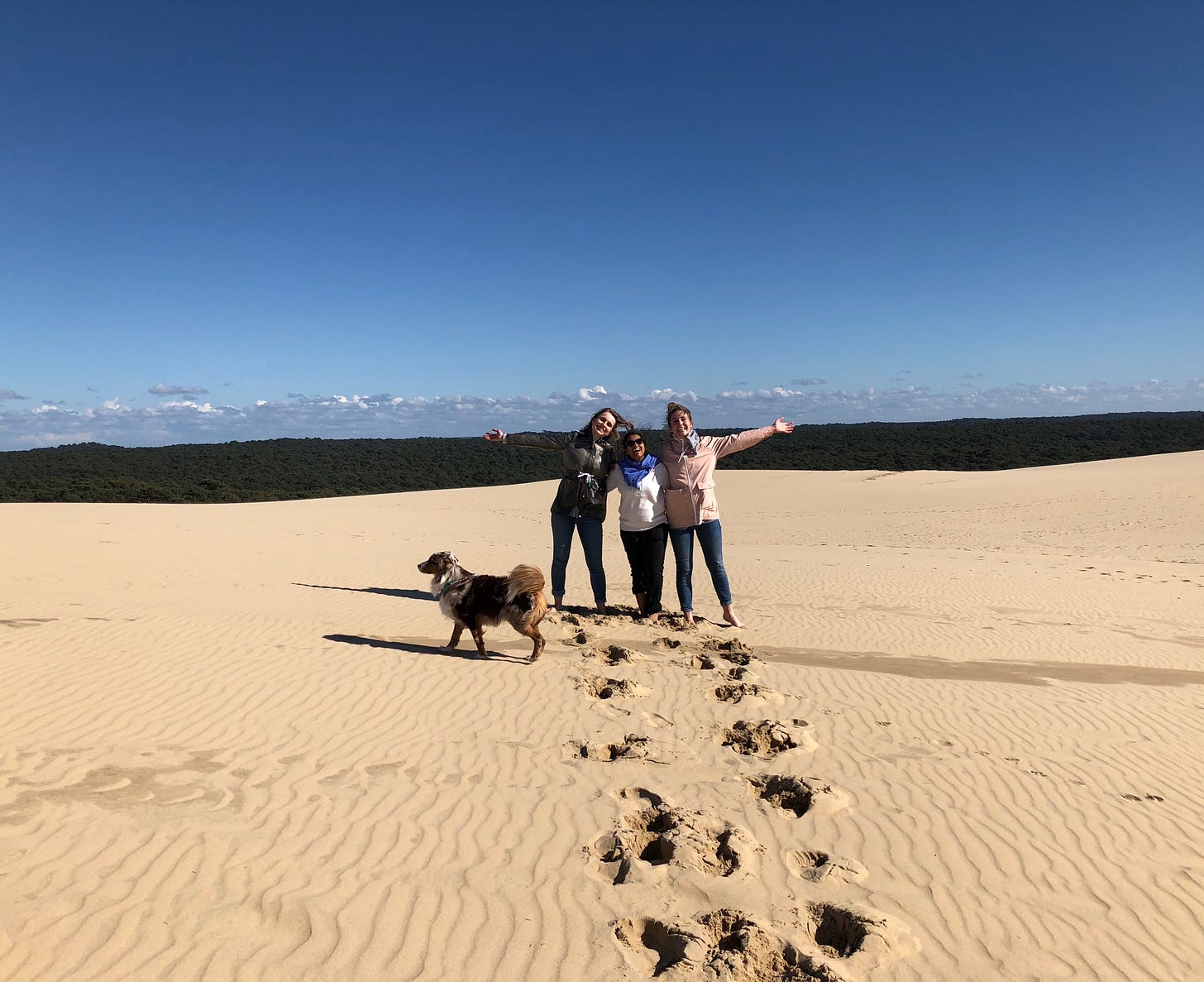Hey Friend,
In 1825 Brillat-Savarin wrote, “Tell me what you eat, and I shall tell you what you are.” His novel The Physiology of Taste was written during the last 25 years of his life, while his former years were spent as a lawyer and then a judge. Brillat-Savarin philosophizes how to eat, when to eat, with what purpose, and gossips along the way.
He reminds us that we should ask friends over for dinner and writes, “to invite anyone implies that we charge ourselves with his happiness all the time that he is under our roof.”
I love entertaining and menu planning, but more notable is a ritual I call “French morning.” Every so often, I go for a walk in the morning, buy a croissant and an espresso and sit and enjoy it. Maybe I say “hi” to a neighbor along the way, I don’t check my phone, and if the weather permits it, I wear something nice. For me, this is joie de vivre—the exuberant enjoyment of living. Still, our greatest joys are found in groups.
I’ve included a snippet from a New York Times article titled “There’s a Specific Kind of Joy We’ve Been Missing” by Adam Grant, who is an organizational psychologist.
Research has found that people laugh five times as often when they’re with others as when they’re alone. Even exchanging pleasantries with a stranger on a train is enough to spark joy. That’s not to say you can’t find delight in watching a show on Netflix. The problem is that binging is an individual pastime. Peak happiness lies mostly in collective activity.
We find our greatest bliss in moments of collective effervescence. It’s a concept coined in the early 20th century by the pioneering sociologist Émile Durkheim to describe the sense of energy and harmony people feel when they come together in a group around a shared purpose. Collective effervescence is the synchrony you feel when you slide into rhythm with strangers on a dance floor, colleagues in a brainstorming session, cousins at a religious service or teammates on a soccer field.
In keeping with the French theme of this article, there is a saying in France that translates to subway, work, sleep—métro, boulot, dodo. Perhaps the only way out of boring routines and a lack of social connection is joie de vivre, and the first step to greater connection could be embracing solitude. Befriending ourselves.
Clinical psychologist Ami Rokach explains in the book Together, “The fog of loneliness also blurs our internal mirrors. It obscures our inner strengths, as well as the value that we have to offer, the meaning of our own lives, and the courses of joy and wonder that would normally make us feel connected to the universe around us.”
My friend #16, Marisa, spoke of her year in France as a formative one filled with self-discovery. “We’d go sit in the park for hours and there was a part of me that thought, ‘is this how we’re going to spend our entire day?’’’ she jokes.
Here are some pastimes that can cultivate more joie de vivre, whether that be alone or with friends. These are all a bit cliché but perhaps our joy lies in simplicity.
Enjoy your meal
Go for a walk
Wander an area or interesting store
Watch a movie or read a book
Have a picnic
~ Miriam


